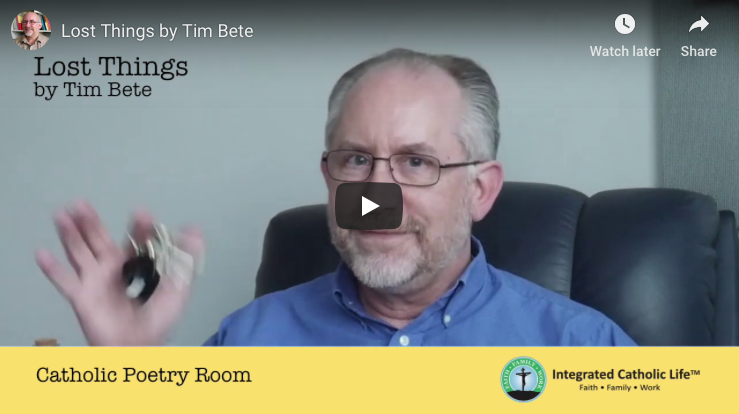In 393, Saint Augustine wrote his Commentary on the Sermon on the Mount. In this edifying treatise, he begins with the weighty proclamation that “anyone who piously and earnestly ponders the Sermon on the Mount — as we read in the Gospel according to Mathew — I believe he will find therein… the perfect standard of the Christian Life.” And indeed, prayerful contemplation on Christ’s Sermon will reveal that it possesses the divine principles of justice leading to a deep understanding of the way in which we ought to live in order to answer Christ’s call to “be perfect, as your heavenly Father is perfect.”
The Beatitudes are the centerpiece of the Sermon on the Mount and throughout the life of the Church they have been central to Catholic moral theology. However, in these strange times the glass through which we see darkly has become so warped by artificial light that we now often perceive an inversion of Christ’s moral truths. Disordered society has attempted to transform the Beatitudes into moral platitudes. The modern tendency is to project them as calls to social reform, an external concern with lifting the poor and seeking a worldly peace.
Viewed as external precepts, the Beatitudes may well better our society by a degree or two, but such a gain can only be superficial and temporary. As St. Ambrose reminds us, “our own evil inclinations are far more dangerous than any external enemies.” The Beatitudes are meant to be directed inward towards our internal poverty and the attainment of spiritual peace as preparation for the spiritual combat necessary to save our souls and to colonize the heavenly country.
In the body of St. Augustine’s lesser known works we find Sermon 53 on the Beatitudes. With this little known homily St. Augustine can begin to help us to recover an accurate understanding of the Beatitudes as the solemn blessings that embody the spiritual character of Christ’s Kingdom; for the Beatitudes exemplify the features that describe the heavenly dispositions leading to our sanctification. Their simplicity, truth and beauty in moral theology are unsurpassed.
“Blessed are the poor in spirit, for theirs is the kingdom of heaven.” To be poor in spirit is not to be materially impoverished, but to be humble. St. Augustine explains that “whoever is puffed up is not poor in spirit.” The poor in spirit are not weak; they are strong enough to be detached from the material riches of this world. The kingdom of heaven is on high but as is said in Mathew 23:12, “he that humbles himself shall be exalted.” St. Leo the Great further elucidates the maxim: “blessed, therefore, is poverty which is not possessed with a love of temporal things, and does not seek to be increased with the riches of the world, but is eager to amass heavenly possessions.”
“Blessed are the meek for they shall inherit the earth”. The Greek word for meek has a twofold meaning at once as strong as iron, yet as gentle as a feather. Jesus describes meekness as being “wise as serpents and gentle as doves.” St. Francis de Sales further elucidates meekness when he says “there is nothing as strong as true meekness, there is nothing as gentle as true strength.” One who is truly meek will possess the earth, “if you are not meek, it will possess you.” St. Augustine notes that the earth refers to the heavenly kingdom and in another sense, self-possession ordered to Christ that unifies and integrates a community of souls.
“Blessed are they who mourn for they shall be comforted.” St. Augustine cautions us against an improper understanding of mourning. Jesus does not bless every form of sorrow. Despair is sorrow without hope. Self-pity is a most dangerous form of morning. What of “those who mourn “according to the flesh? They have troublesome and frightening consolations.” Mourning is the expression of inner discontent, of the gap between desire and satisfaction, in other words for suffering. We are to mourn for our sins and the sins of others. Our “true consolation will be that which gives comfort that will never be lost.”
“Blessed are those who thirst and hunger for justice, for they shall be satisfied.” If we hunger for the things of this world we will end in starvation. We ought to hunger for justice, the Bread of Life who is Christ. He tells us in John 6:41, “I am the bread that has come down from heaven.” We ought to thirst for the living water of which our Lord said “whoever drinks of the water that I shall give him will never thirst.” St. Augustine advises us to “pant after the drink of the thirsty as well, for with Thee is the fountain of Life.” Christ being the all-encompassing truth and justice is our food and drink, we ought to hunger and thirst for Him.
“Blessed are the merciful for they shall obtain mercy.” St. Augustine reminds us here of the truth that we are beggars at Gods door and someone is begging from us. He entreats us to remember that “as you treat your beggar, so will God treat his.” He exhorts: “Out of your own fullness fill an empty man, so that your own emptiness may be filled from the fullness of God.” To him that shows mercy, mercy will be shown. The holy appeal to show mercy is well illustrated by the parable of the Good Samaritan.
“Blessed are the pure of heart for they shall see God.” St. Augustine explains that “the eyes by which God is seen are within the heart.” As if he is speaking to our age he admonishes, “how foolish then are those who try to find God through the use of their bodily eyes!” We must walk by faith not by sight. The purification of our hearts is the true end of our love which will allow us to see God clearly. The brightness of the true light will not be able to be seen by the unclean sight: and that which is joy to minds that are clean, will be a punishment to those that are tarnished. St. Augustine explains, “A simple heart is a heart that is pure; and, just as the light which surrounds us cannot be seen except through eyes that are clear, so neither is God seen unless that through which He can be seen is pure.”
“Blessed are the peacemakers for they are the children of God.” St. Augustine clarifies that “where there is no contention, there is perfect peace. And because nothing can contend against God, the children of God are peacemakers.” The Peacemakers of God are the opposite of the peacemakers of the world, for the men of the world cry “peace peace when there is no peace.” St. Augustine explains that “man is unable to rule over the lower things unless he in turn submits to the rule of a higher being. And this is the peace promised on earth to men of good will.” God’s peace is only possible when everything is in its proper order and oriented to Him.
Finally, “Blessed are YOU when men revile YOU and persecute YOU and utter all kinds of evil against YOU falsely on my account. Rejoice and be glad for YOUR reward is great in Heaven, for so men persecuted the Prophets before YOU.” The first seven Beatitudes are free will choices on our part; the eighth Beatitude is done to us in consequence of these choices. We are to suffer the eighth Beatitude as we prefect the practice of the first seven.
After Jesus proclaims the Beatitudes, the rest of the Sermon on the Mount illustrates the effects manifested by the precepts of the perfect moral law. The Beatitudes are the heavenly norms for which we must strive to conform ourselves by cooperating with the graces gifted by the Holy Spirit. Christ presents the Beatitudes to us in their proper order from the lowest to the highest. The first step of the climb on this stairway to heaven is humility leading upwards through the rest of the Beatitudes towards the final end of wisdom. The Beatitudes embody the properly ordered mystical hierarchy of the rise to sanctity.
The splendor of the Beatitudes lived out completely is no less than the ascent to full communion with the saints. St. Thomas refines the moral end of St. Augustine’s ethic by explaining that “to possess God in full in the beatific vision is to have our powers fully realized, fully perfected, and to find them at rest, in perfect happiness for all eternity.” Here in the Gospel of Mathew is gifted to us the perfect standard of Christian living. Allow St. Augustine to bring us to a deeper and properly ordered understanding of our Lord’s call to the beatific vision.
If you liked this article, please share it with your friends and family using the Recommend and Social Media buttons below and via email. We value your comments and encourage you to leave your thoughts below. Thank you! – The Editors





![“You ask too little [of God]”](https://integratedcatholiclife.org/wp-content/uploads/crucifix-coan-detail-featured-w480x300.jpg)








